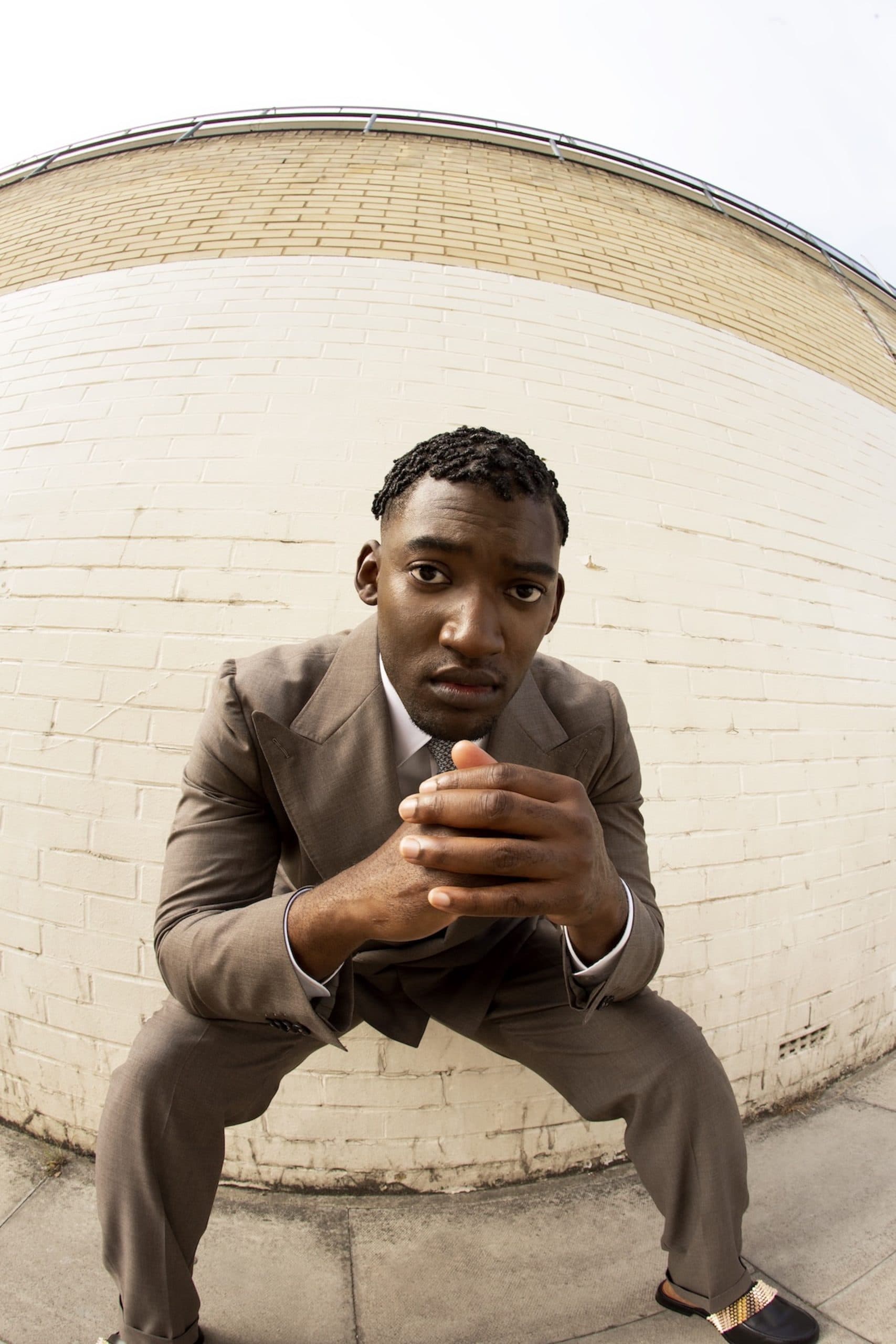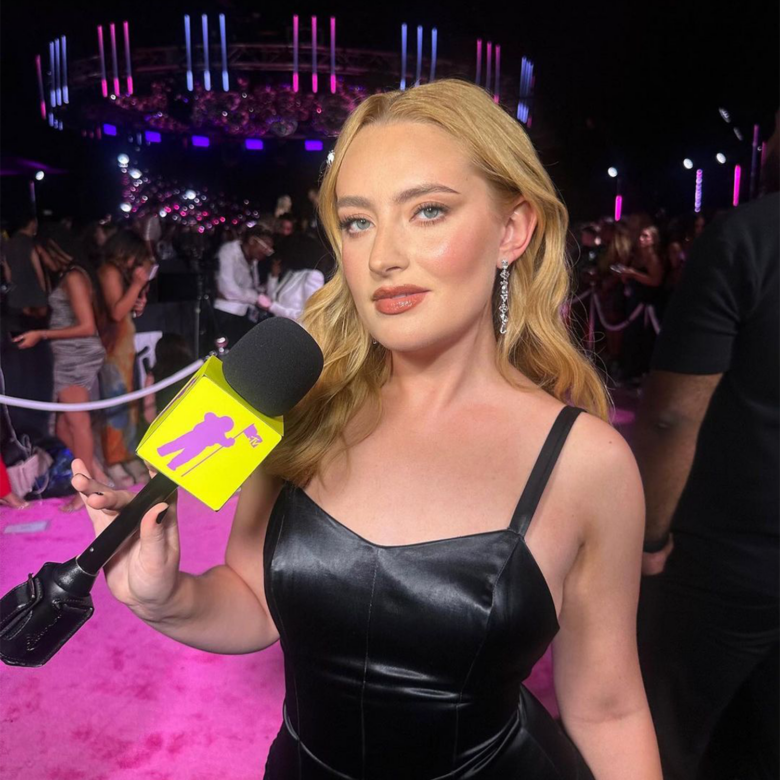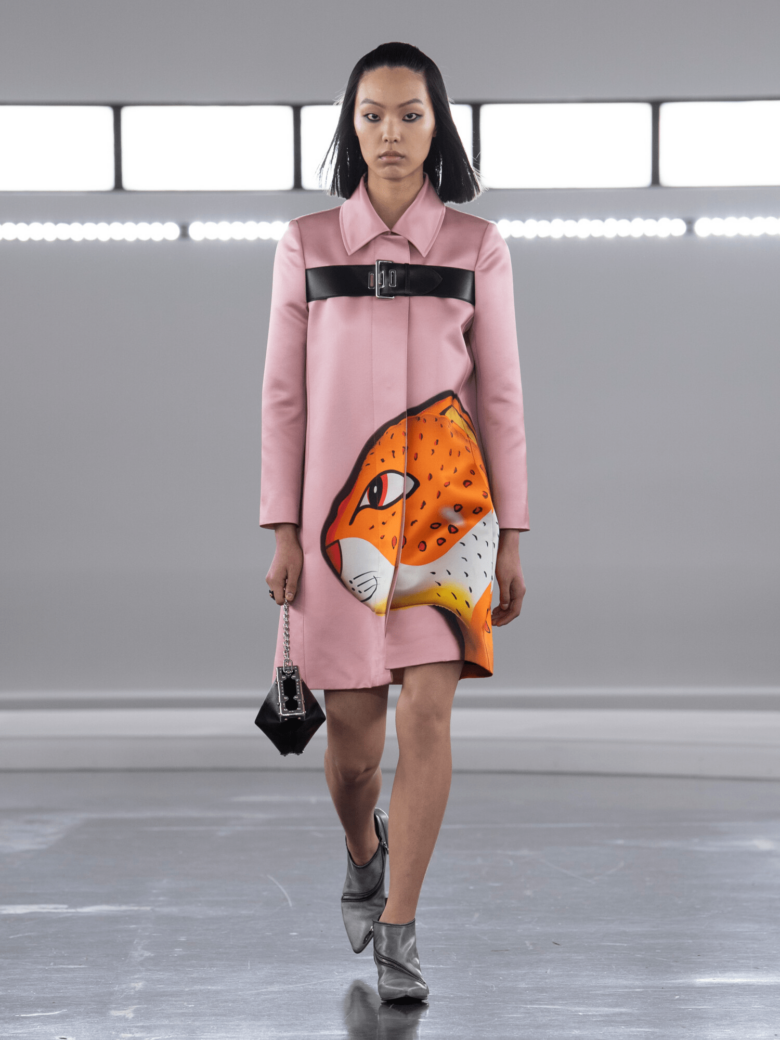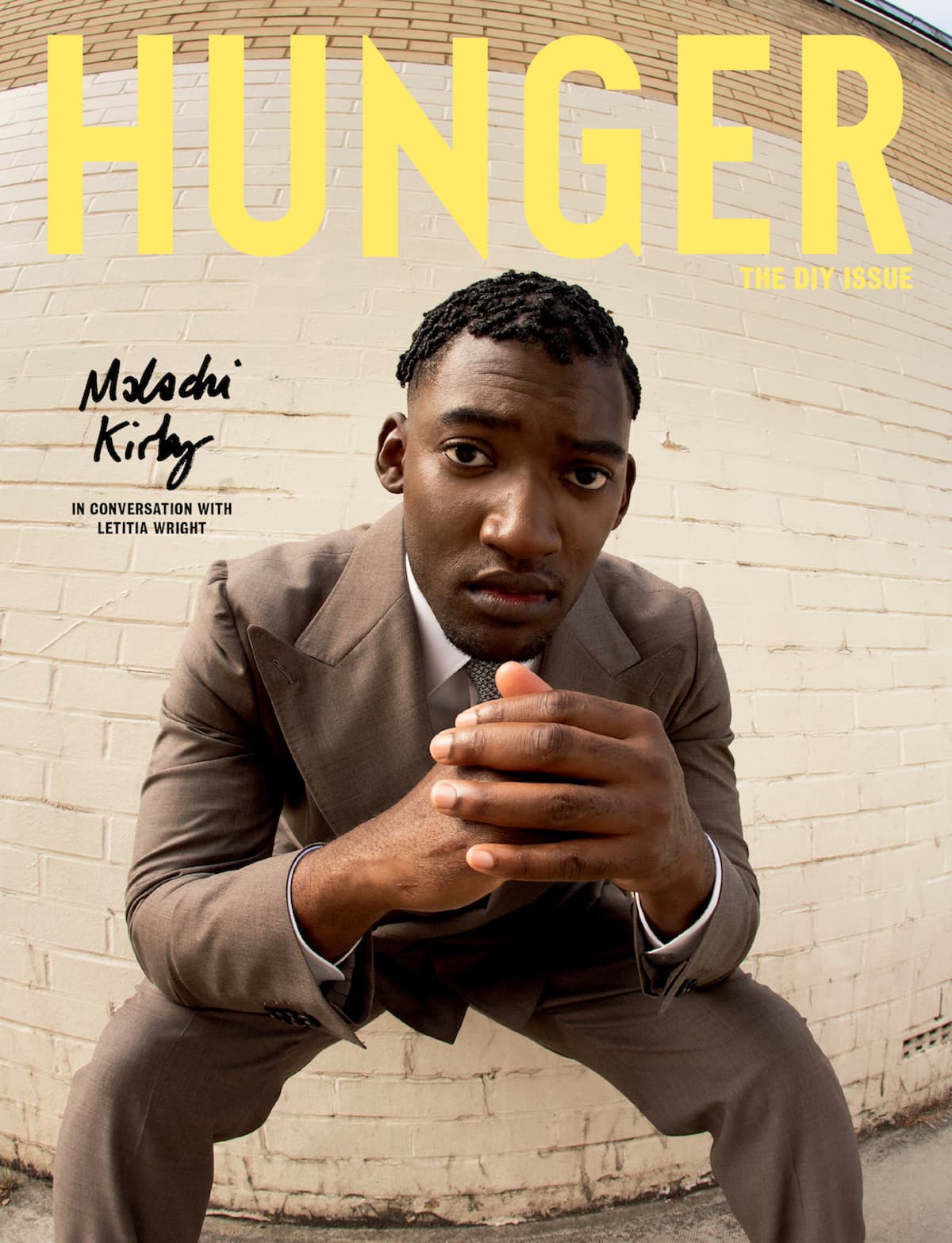
Actors Malachi Kirby and Letitia Wright have been mates for more than a decade, after meeting while training together at London’s Identity School of Acting in 2009 and striking up a firm friendship. Since then, 31-year-old Malachi has played the lead in the 2016 TV adaptation of Roots, while Letitia joined the Marvel universe, starring in Black Panther and Avengers: Endgame. Both have also appeared in separate episodes of Charlie Brooker’s Black Mirror, but despite their lives being intertwined personally, they hadn’t worked together until recently, when they secured roles in Sir Steve McQueen’s new five-part anthology series, Small Axe, to be aired on Amazon Prime Video and BBC One later this year.
“They were passionate and they wanted it, there was a real need,” the series’ Academy Award-winning director tells us when we ask what led him to cast the pair. Embodying two prolific racial justice campaigners, Darcus Howe and Altheia Jones-LeCointe, Malachi and Letitia appear in Mangrove, the first film of the series. The roles are arguably their most prominent yet, with the historical drama series giving them the opportunity to express the extent of their acting prowess. “There were many [impressive] moments, big ones like Malachi cross-examining [policeman Frank] Pulley in the courtroom and Letitia confronting [activist] Frank [Crichlow] in the green room, as well as all the small moments and their reactions to their colleagues. You can’t have one without the other, and all of these moments combined, big and small, make their performances whole,” the director says.
A few weeks prior to the European premiere of Mangrove at this year’s London Film Festival, the pair link up over a crackly Google Hangout for what they describe as “a personal catch-up”. They discuss working with Steve, growing up in London and battling racial prejudice in the TV and film industry.
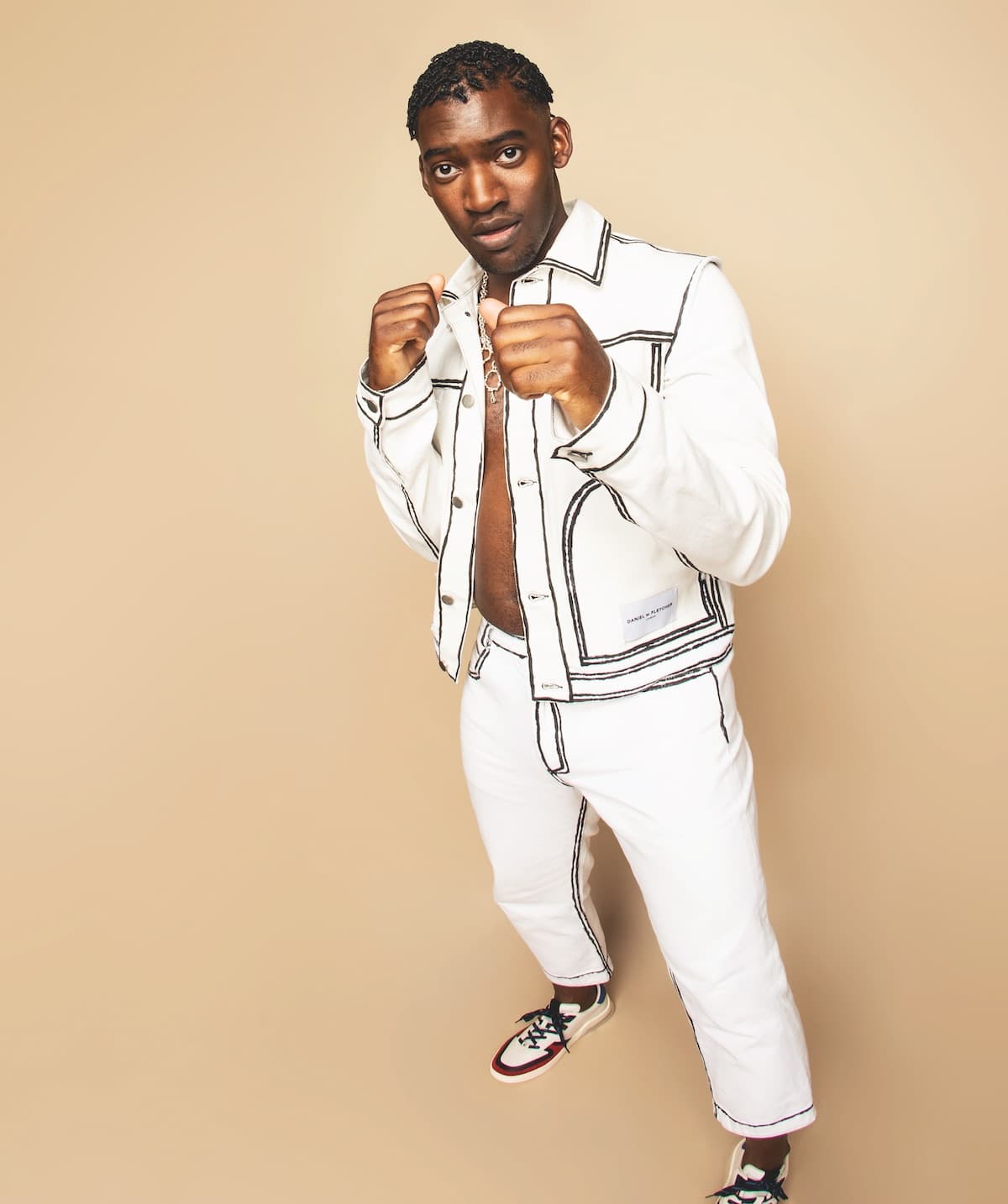
Malachi Kirby: When did we first meet? When did you start at ID [Identity School of Acting]?
Letitia Wright: I think it was 2009.
M: The earliest memory I have [of meeting you] is being in drama class and seeing what seemed like a shy, timid girl walk into the room. I really just remember the first time I saw you act. You were on stage doing a monologue and I just tensed up and was like, “What is happening? Who is this girl?” And I remember that having a really big impression on me.
L: I remember when I first joined, I wasn’t attached to the agency [arm of the school], I was just trying to learn my craft and you guys were in the Identity Agency Group. That was the group I aspired to be alongside in terms of talent. You started off in theatre, I remember you did Mogadishu [at the Lyric Hammersmith] and you did a short film called Jonah with Daniel Kaluuya, you did some episodes of EastEnders – you did so much! You were just at that place of, and I feel like you still are, developing your craft and understanding yourself as a person, as an actor, as a man of God. So I came into it meeting you and being inspired by you, before we became proper brothers and sisters. Anyway, what have you been up to since we wrapped Small Axe, how have you been?
M: I don’t even remember life before March. [Filming Small Axe] was quite an intense experience – an incredible experience, but it was definitely one that left quite a profound effect on me. I don’t really notice it until I’ve finished a job and my body goes, “OK, rest now.”
L: Definitely. That’s me right now after wrapping yesterday.
M: After that I just took some time out and then had to get back to work on a play I’m writing, but it was just filled with this experience that I had on Small Axe, playing that role of Darcus [Howe] and being in that space and going back in time to the 1970s and seeing what they were going through. I couldn’t help but allow that to influence my creativity. And then it just feels a bit of a blur and then – boom! – lockdown. What about you, what have you just wrapped?
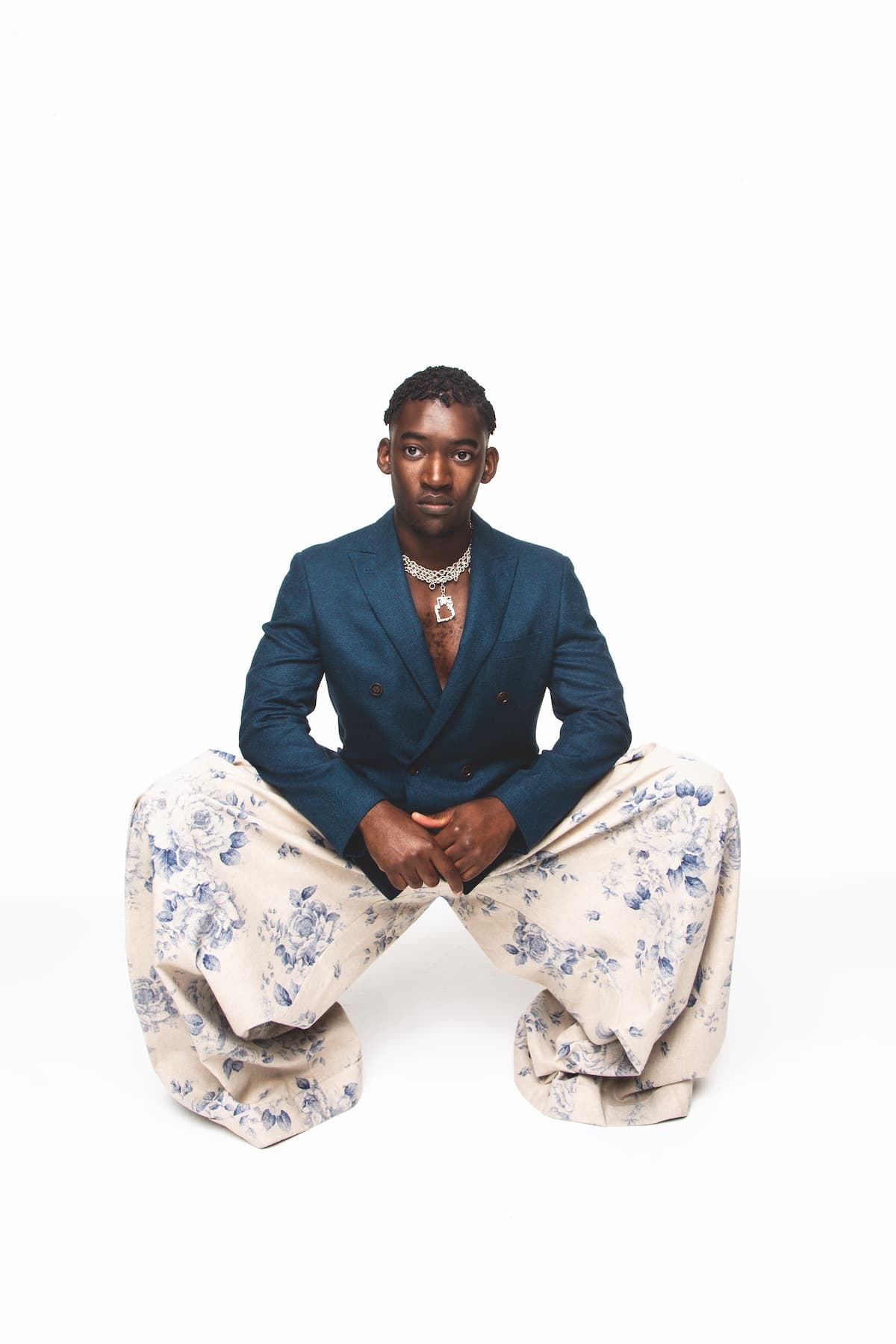
L: I just did something with Dominic Savage. It was amazing – best experience ever! It was like a semi-improvised movie. We wrote the skeleton of the story, and other aspects of it were inspired by people’s stories that I’ve heard, and then we combined the two, and we had a brilliant cast attached. What was it like preparing for Small Axe? How did you get into being, or trying to represent, Darcus Howe?
M: So Darcus is the second person I’ve played that actually existed. The first time was when I did My Murder in 2012, and so because of that, as soon as I accepted the part I was reminded of the weight of trying to become and understand this person that existed. It was even more difficult with Darcus, because he had lived such a full life, way beyond my years, and he had such a profound effect on people. So it was like, “OK, I’ve got to get to know this guy in a very short space of time.” Taking the opportunity to speak to his family members, people that actually knew him, [doing] research, like watching interviews, reading books. I was just cramming my head with anything that was to do with him.
Then, of course, there’s the accent. So, fun fact – both Trinidadian specifically and Australian are two accents that I was like, “That is never going to happen.” So when [the voice of] Darcus came up, that was like, “OK, God, I’m going to need your help here.” There’s Trinidadian but then there’s also Darcus, and I very quickly learnt that his accent is very specific. Sometimes I would listen to his voice when I was sleeping because I find that my brain tends to take things in [during] sleep. Other than that, just as usual, [a lot of] prayer. What about you?
L: Definitely the same. I was with you on that journey throughout, from you auditioning, or practising at my house before your first audition [for Small Axe].
M: I’m just going to your house and I’m like, “I’ve got this tape I’ve got to do, I’ve got to work on this thing,” and you’re like, “What is it?” And I’m like, “I can’t talk about it,” and you were already attached to it!
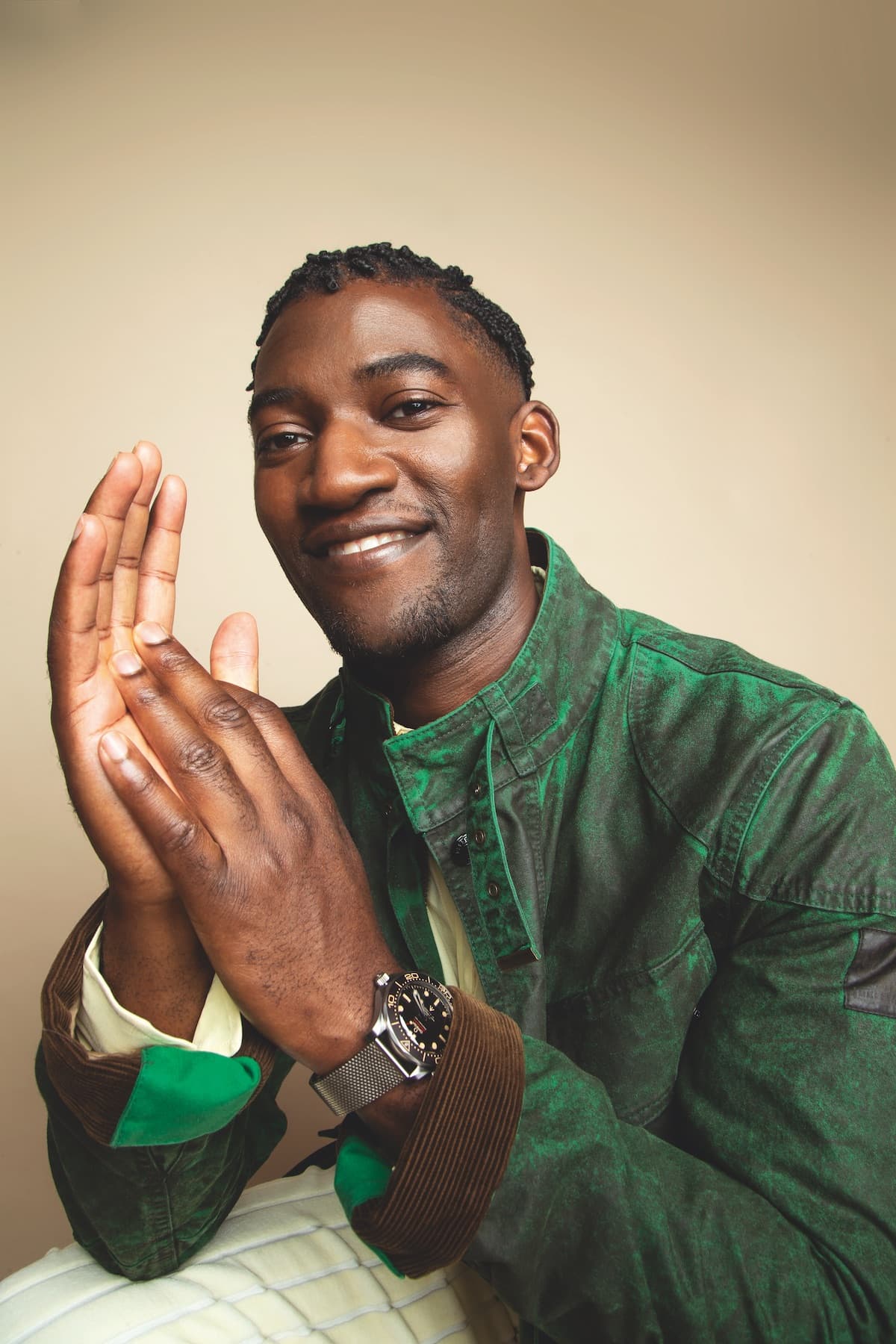
L: Seeing London in that era and seeing the essence of what they were going through. With us both being Londoners, what was your experience like as a Londoner growing up in Battersea and did you ever see any parallels in the London that we just had to recreate and represent in Small Axe?
M: I grew up in the blocks on a council estate, but it’s weird, because when I was growing up there, until the age of about 15, when I left, I only saw that council estate. Not physically, but I just didn’t take in anything else. It was only when I got older that I realised there were actually mansions in the same area. It was in the middle of this really prestigious place. I think London has always been, for me anyway, a really vibrant place, and really welcoming in terms of different cultures. It’s just always been a melting pot of these different cultures and personalities and people that have to coexist. Maybe it was a slightly naive outlook, but that was my experience. There’s always been this feeling like I’m in a bit of a bubble and there’s this other thing happening on the outside of it. Telling this story with Small Axe really felt like we were visiting outside the bubble. That bubble popped and this is the other stuff. I guess it was in a time when people were still learning how to dwell in the same London, to dwell together as opposed to seeing each other as the enemy or the other. The London that I grew up in, it was fine for us all to live here.
L: Do you find that what they [Darcus Howe and Altheia Jones-LeCointe] did and how they represented themselves and how they stood up for justice has enabled us to have the London that we are experiencing now – a better version of that London that they didn’t get to experience?
M: Definitely. I always find it quite strange, the conversations that are being had. Strange in a sense that this should just be obvious. What we are essentially asking is to be loved, to be acknowledged, to exist. And when I say “we”, I’m not speaking about a specific group of people, I just mean people, like just saying, “Is it OK that I exist here, too?” It’s a plea, it’s a fight that has been happening for years. It’s one that is happening now, and it is one that will continue to happen until we understand love.
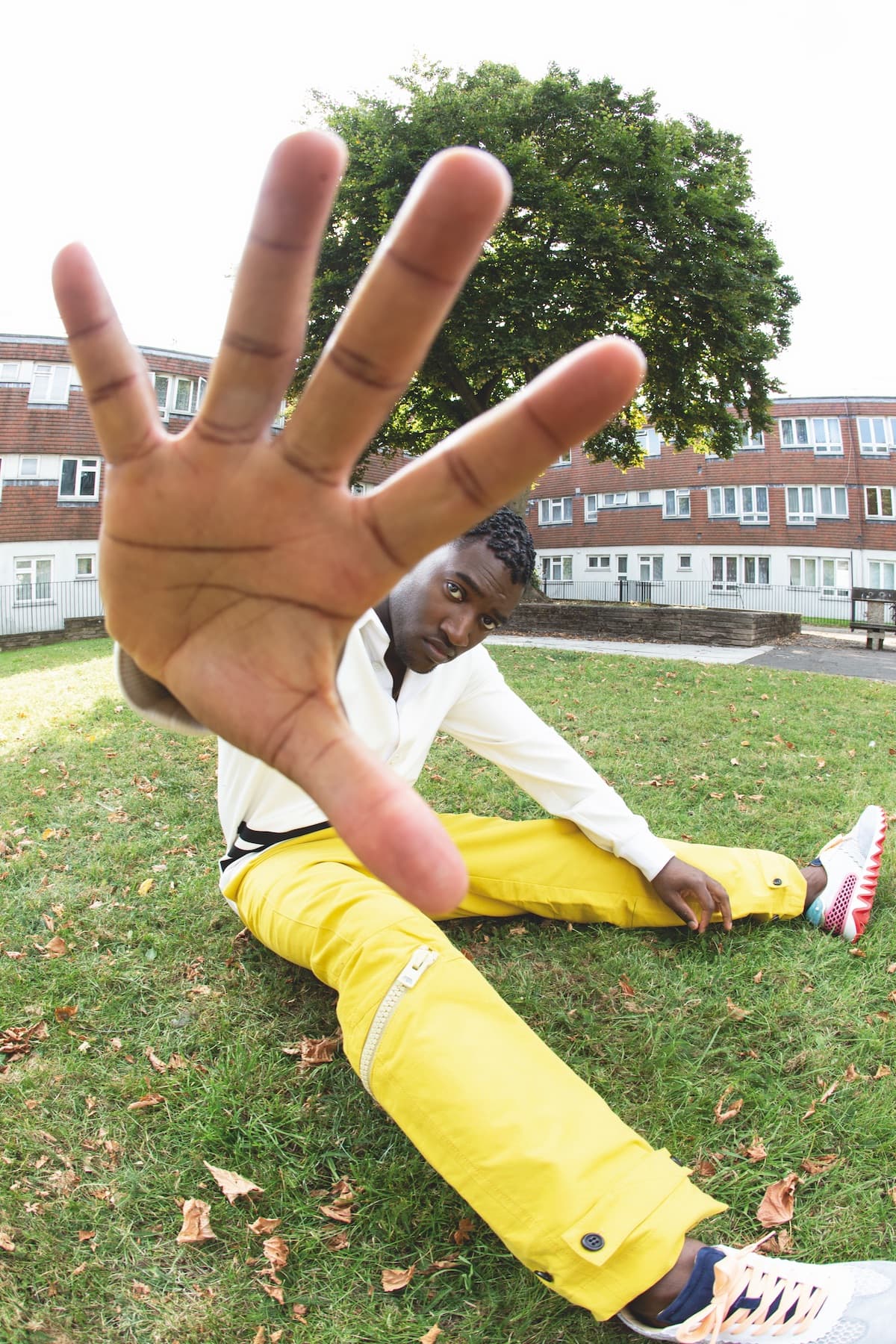
L: Seeing as we’re speaking about people who have overcome tough situations, what has it been like for you in terms of your career? What were some of the obstacles or barriers that you faced and how did you overcome them?
M: I remember having a conversation with an actor. He was, at least to me, quite a well known actor. He was the older generation and a Black man. I remember him saying to me, and I believe that his sentiment was one of care, but that, as a Black actor, I’m going to struggle, and this was before my journey had really begun. He brought to my attention for the first time this glass ceiling. He spoke about the fact that there are going to be doors that are closed to me, and that there are going to be periods when I don’t work, so I’m going to have to find another job to support what I’m doing. I remember my guard going up. It felt like he was trying to give me a gift but actually it felt more like a burden. So I very intentionally shut off this idea of a glass ceiling, shut off this idea that the colour of my skin was going to create challenges for me.
I’m a self-employed artist and I will work when I want to, not in an egotistical way, just in a way of hope. I’ve never felt a door has been closed to me, actually. I know that stereotypes are always going to exist for everyone, but I never felt limited by that. I feel like my career has actually been really favoured.
L: Amen.
M: I’m very grateful for that. I think the biggest challenge for me has been choice. I struggle being decisive. Understanding my integrity as Malachi versus my career as an artist and merging those two. Something might sound like a great project and the money is great and the cast is amazing, but is that for me? This idea of choice isn’t acknowledged enough. What I was taught by many people I came across was that, as an actor, you get what you’re given and [should] be grateful for it. The idea that you would say no to a job back then, people would be offended by it.
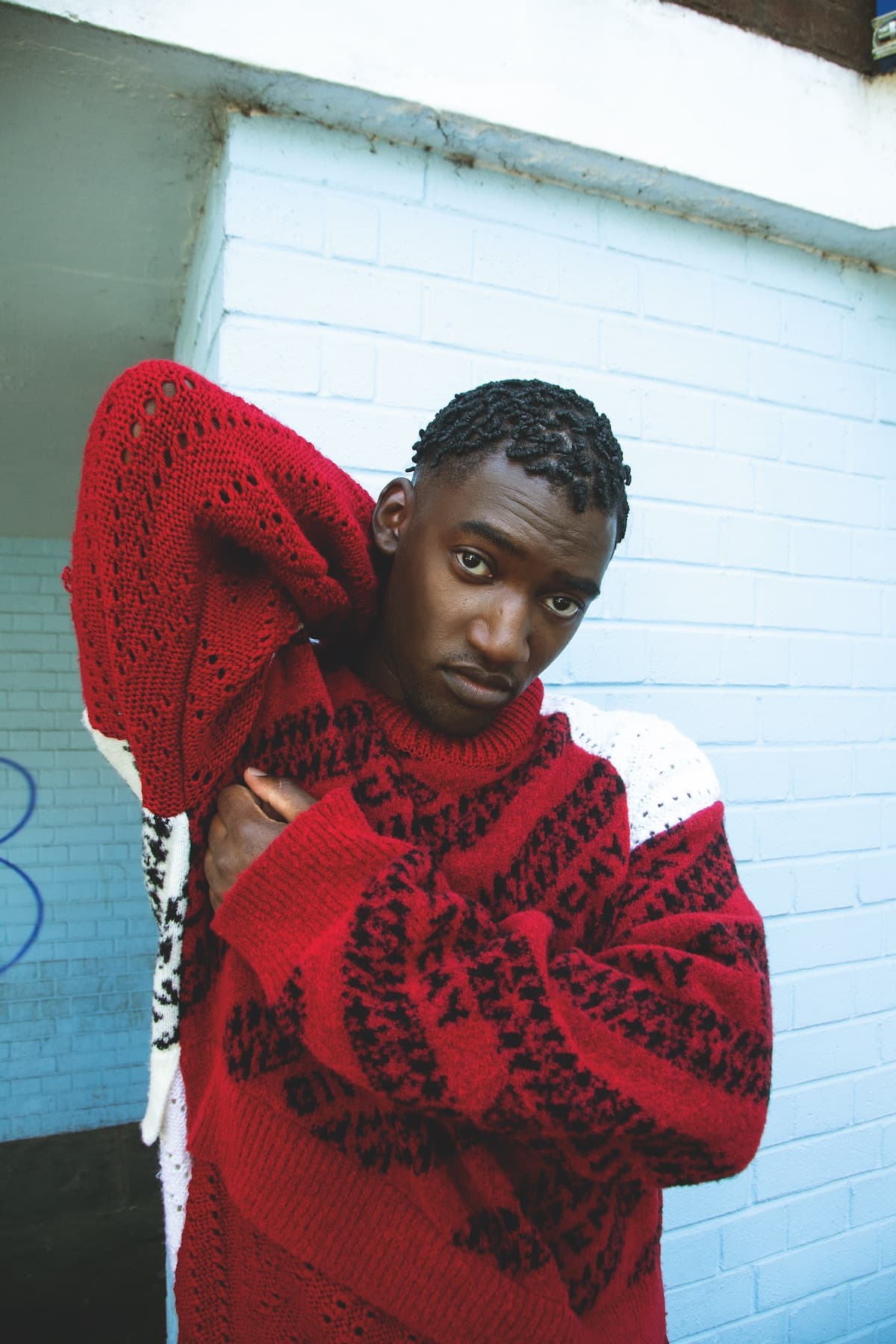
L: I think they still are! I definitely relate to not taking on an extra burden, because you have the burden of taking on the character, being the character, being truthful, praying that the project is a success, praying that the project has an impact and an outreach, and then if you take on that added burden of “If I’m going to make it because of the colour of my skin… ” That is too much of a burden to bear. I am with that mentality of, “I’m going to try to think positively about this and try to go with God and create this path for myself and I’m going to believe in it.” I would rather fail trying than not try at all. I would rather try to think positively and not allow all the obstacles that society wants to set up for me to be my reality.
I have agents tell me in America, “Tish, this didn’t go your way, these producers are old school, you’re Black and you’re a woman and they’re looking at who can sell at the box office.” And I’m just like, “Well, they don’t deserve my talent.” My value system is in the people who I can have an impact on and the hearts that I can touch and the lives that I can change through my art, and I value myself enough not to sell myself short. And if you can’t see beneath the colour that God decided to create me with, then you’re not worthy to even speak to. I think [Steve] McQueen is the same way. He’s set in his vision and he has set out to create projects that he wants to create. He’s proven through his art that if he puts his mind to it, there’s no limitation to him. He broke barriers and boundaries and did numbers and all of these things from a place of authenticity with his work. What was it like working with him? How did his directing style compare with people you’ve worked with before?
M: He is such a presence and he has such an incredible and present mind. He is so detailed and so specific, he’s a visionary. He knows what he wants. But what was incredible about working with him was that he allowed me to exist. As much as he was directing, he allowed that space for all of us to come on and just be. It was almost like he wasn’t there. At his best he was invisible, and sometimes a gentle voice in our ear and sometimes a powerful voice in our ear, but it wasn’t ego. I don’t think I’ve ever had that before. Outside that, it was terrifying – it was definitely terrifying, but in a good way because it kept us all… I’m trying to remember this phrase that he would always say.
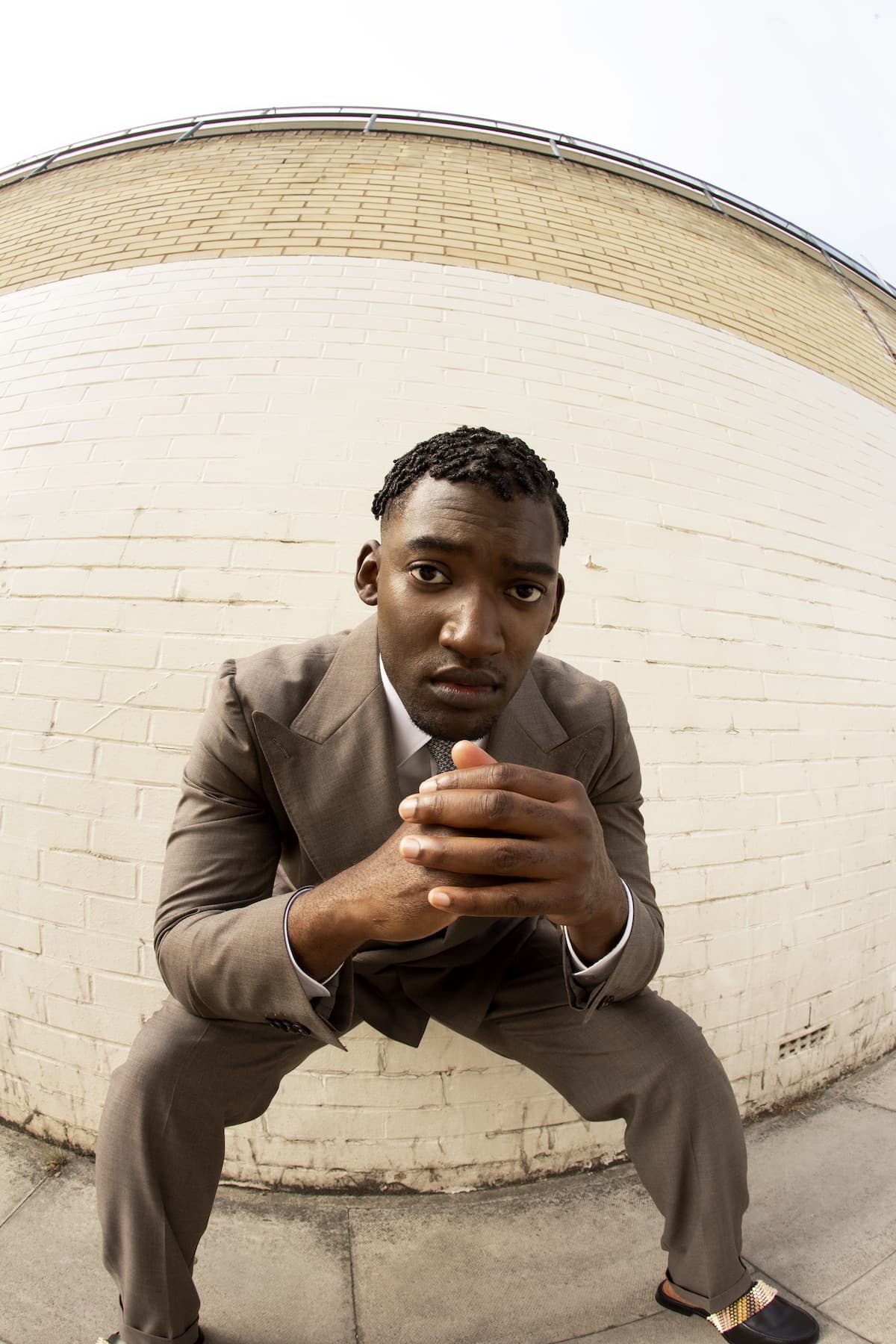
L: Leave it on the screen! “We’re going to die anyway! We’re going to die one day! Leave it on the screen!” [I] literally lived by that.
M: It was beautiful because it was like, “Don’t hold back. Everything that you have in you, just pour it out and know that you’re going to come tomorrow and you’re going to be refilled and you’re going to go again, but pour it all out now.”
L: Speaking about the nuance of the Black British experience on TV, and now that you’ve been able to experience that on Small Axe, how do you feel that we can see more of that so we don’t have that one singular experience? How do we make this a consistent thing?
M: I think the key word in that is “nuance”. It’s about being present and existing, and being able to think is such an underrated thing. Being able to play a character that exists enough to think. I’ve always found that my career has been really nuanced in terms of theatre. I’ve never even considered or felt like my colour was considered when it comes to the stage, and even with film, but with TV – and I’ve only really mostly done TV in the UK – my colour always seems to come into it. Especially on the character breakdowns, it’s much more specific. So, although I’ve played a variety of roles, I’ve always felt the need to try to bring as much nuance as I can to this small frame that has been created for me on a page. With a project like Small Axe, from the script stage, these characters existed, and lived and fought and felt like they were affected and they were nuanced. I hope that, out of this project, will come an understanding not just for the writers but the producers, the people who hire the writers, to really take time to find the writers that understand the worlds that they’re being asked to create.
L: So finally, what are you excited for in the future? I know 2020 has been, Jesus help us… interesting. But moving forwards, what are you excited about?
M: I am honestly quite hopeful about [this year] and excited about what it will do for us as humans, because just from what I’ve observed and the stories that I’ve read about times past, when things like this happen, we innovate. We create. So I’m excited about what this time will do for us generally as humanity but also as artists. The new ways that we will find to create if needed. The stories that will come out of this period of time that aren’t so common. I’m looking forward to how we overcome it. I know that we will and I know that we have to, so I’m looking forward to being part of that.
The DIY Issue is out now, get your own copy here. Small Axe premieres on 15 November on BBC One.
